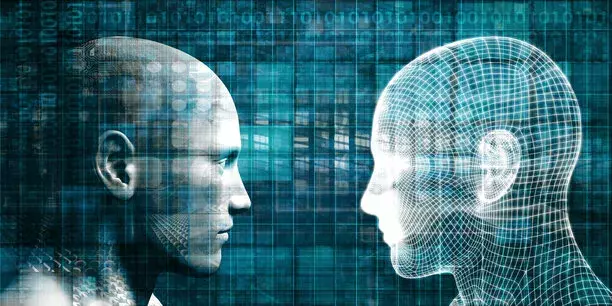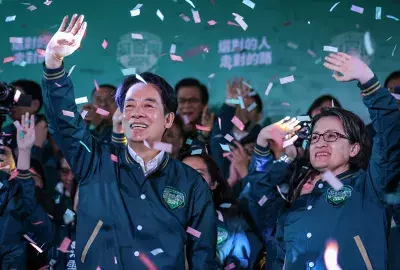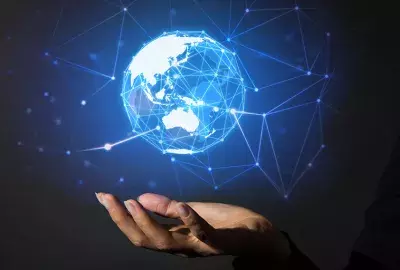
Scholars urge a “revolution in human nature” while we still have a chance
Quick take:
- If current approaches continue, humanity may reach an “ethical singularity,” when the window of opportunity to make ethically informed “course changes” in the relationship between humans and intelligent technology will close.
- Technology reflects and amplifies human values and intentions. To realize the potential of intelligent technology, we must develop a new global “ethical ecosystem” to ensure that our future is not just “smart” but more equitable and humane.
HONOLULU (July 2, 2021)—Artificial intelligence, machine learning and big data are transforming global society, and questions of how to harness their potential while avoiding their risks are among the most pressing issues confronting an increasingly connected world.
“The transformational possibilities of intelligent technology are unprecedented,” said Dr. Peter Hershock, director of the Humane AI Initiative at the East-West Center in Hawai‘i, during a recent online discussion panel on Humane Artificial Intelligence and Our Collective Future. “But if we are going to realize its tremendous promise to do good for the world while avoiding its equally great perils, we need to resolve the predicament of its potential to accelerate human values conflicts.”
Approaching an ‘ethical singularity’
Hershock discussed his recent book, Buddhism and Intelligent Technology: Toward a More Humane Future, in which he questions both utopian and dystopian narratives about intelligent technology and looks to Buddhist thought to help ensure that AI helps humanity realize its higher aspirations rather than enables its exploitation.
Much attention, he said, has been given to the possibility of a “technological singularity,” a hypothetical point when a sort of runaway chain reaction would result in an artificial superintelligence escaping human control. But long before that distant sci-fi scenario occurs, Hershock argued, humanity could reach what he called an “ethical singularity,” when synthetic intelligence is not only reflecting our own moral values back to us with accelerating efficiency but shaping those values, rather than the other way around. As he put it: “The power to know citizens and consumers through machine learning and big data is also the power to shape them.”
Forging a new ethical ecosystem
If our current relationship to AI continues, it will not just disrupt labor markets and intensify inequality, Hershock said; it will change human behavior, structure our thinking and guide our decision-making. Already, he said, machine learning systems are being used to capture people’s attention and convert it to revenue through predicting and then shaping consumer behavior. Such systems might be just as effective in predicting and shaping voting behavior—not a power we want to confer to machines, he warned.
The debate about which human values and priorities AI should reflect and amplify will require nothing less than a “new, global ethical ecosystem”—one that privileges compassion, creativity, diversity, cooperation and responsible stewardship of our social, political, economic and natural environments, he said.
Creatively engaging with intelligent tech
Joining the discussion were two research fellows affiliated with the Humane AI Initiative. Dr. Andre Uhl, whose research explores the role of place-based knowledge in ensuring responsible governance of emerging technologies, said that “to have more diverse and inclusive engagement with AI, we need to recognize that technology is a system that amplifies our relationships.”
Uhl, founder of The IEEE Earth Lab hub of engineers, ethicists, corporate leaders, policymakers and others seeking AI solutions for climate resilience and green growth, emphasized that answers are to be found not so much in controlling the technology as “in finding ways to creatively engage with it.” Taking cultural and generational differences into account is crucial to the success of that effort, he said.
Dr. Emilie Parry, founder of RootBridge Ecosystems, which supports indigenous communities’ efforts to combat climate change and regenerate ecosystems, posed the question of whether the so-called “fourth industrial revolution”—the intelligence revolution—can help humanity transition from our current human-centered era into what she termed an “ecocene,” in which sustainability supplants exploitation as a governing human value. If so, she asked, is there enough time to make the transition before climate change forces a correction? And what role might AI and big data play in charting new courses for ecological transformation?
Revolutionizing human nature
Before we can consider the benefits of human-centered AI, we must “revolutionize our human presence,” said Hershock, though he acknowledged that the window of opportunity to do so is closing. “What kind of relationships do we have with one another now, and what kind to we want to have?” he asked. “Because technology is mediating that relationship. If our relations remain competitive, control-oriented, convenience-oriented and divisive, that mediation will play out in a really negative fashion.”
Buddhist philosophy offers some guidance here, according to Hershock. “It offers resources for understanding how the AI-driven attention economy works, for resisting it, and for cultivating the necessary compassion to form more beneficial partnerships with intelligent technology,” he said. “We are already synthesizing new forms of agency. What we need to do is take responsibility for that, knowing we might not get another chance. The intelligence revolution will give us a better world only if we become better humans first.”
Image: kentoh / Getty Images
Scholars urge a “revolution in human nature” while we still have a chance
Quick take:
- If current approaches continue, humanity may reach an “ethical singularity,” when the window of opportunity to make ethically informed “course changes” in the relationship between humans and intelligent technology will close.
- Technology reflects and amplifies human values and intentions. To realize the potential of intelligent technology, we must develop a new global “ethical ecosystem” to ensure that our future is not just “smart” but more equitable and humane.
HONOLULU (July 2, 2021)—Artificial intelligence, machine learning and big data are transforming global society, and questions of how to harness their potential while avoiding their risks are among the most pressing issues confronting an increasingly connected world.
“The transformational possibilities of intelligent technology are unprecedented,” said Dr. Peter Hershock, director of the Humane AI Initiative at the East-West Center in Hawai‘i, during a recent online discussion panel on Humane Artificial Intelligence and Our Collective Future. “But if we are going to realize its tremendous promise to do good for the world while avoiding its equally great perils, we need to resolve the predicament of its potential to accelerate human values conflicts.”
Approaching an ‘ethical singularity’
Hershock discussed his recent book, Buddhism and Intelligent Technology: Toward a More Humane Future, in which he questions both utopian and dystopian narratives about intelligent technology and looks to Buddhist thought to help ensure that AI helps humanity realize its higher aspirations rather than enables its exploitation.
Much attention, he said, has been given to the possibility of a “technological singularity,” a hypothetical point when a sort of runaway chain reaction would result in an artificial superintelligence escaping human control. But long before that distant sci-fi scenario occurs, Hershock argued, humanity could reach what he called an “ethical singularity,” when synthetic intelligence is not only reflecting our own moral values back to us with accelerating efficiency but shaping those values, rather than the other way around. As he put it: “The power to know citizens and consumers through machine learning and big data is also the power to shape them.”
Forging a new ethical ecosystem
If our current relationship to AI continues, it will not just disrupt labor markets and intensify inequality, Hershock said; it will change human behavior, structure our thinking and guide our decision-making. Already, he said, machine learning systems are being used to capture people’s attention and convert it to revenue through predicting and then shaping consumer behavior. Such systems might be just as effective in predicting and shaping voting behavior—not a power we want to confer to machines, he warned.
The debate about which human values and priorities AI should reflect and amplify will require nothing less than a “new, global ethical ecosystem”—one that privileges compassion, creativity, diversity, cooperation and responsible stewardship of our social, political, economic and natural environments, he said.
Creatively engaging with intelligent tech
Joining the discussion were two research fellows affiliated with the Humane AI Initiative. Dr. Andre Uhl, whose research explores the role of place-based knowledge in ensuring responsible governance of emerging technologies, said that “to have more diverse and inclusive engagement with AI, we need to recognize that technology is a system that amplifies our relationships.”
Uhl, founder of The IEEE Earth Lab hub of engineers, ethicists, corporate leaders, policymakers and others seeking AI solutions for climate resilience and green growth, emphasized that answers are to be found not so much in controlling the technology as “in finding ways to creatively engage with it.” Taking cultural and generational differences into account is crucial to the success of that effort, he said.
Dr. Emilie Parry, founder of RootBridge Ecosystems, which supports indigenous communities’ efforts to combat climate change and regenerate ecosystems, posed the question of whether the so-called “fourth industrial revolution”—the intelligence revolution—can help humanity transition from our current human-centered era into what she termed an “ecocene,” in which sustainability supplants exploitation as a governing human value. If so, she asked, is there enough time to make the transition before climate change forces a correction? And what role might AI and big data play in charting new courses for ecological transformation?
Revolutionizing human nature
Before we can consider the benefits of human-centered AI, we must “revolutionize our human presence,” said Hershock, though he acknowledged that the window of opportunity to do so is closing. “What kind of relationships do we have with one another now, and what kind to we want to have?” he asked. “Because technology is mediating that relationship. If our relations remain competitive, control-oriented, convenience-oriented and divisive, that mediation will play out in a really negative fashion.”
Buddhist philosophy offers some guidance here, according to Hershock. “It offers resources for understanding how the AI-driven attention economy works, for resisting it, and for cultivating the necessary compassion to form more beneficial partnerships with intelligent technology,” he said. “We are already synthesizing new forms of agency. What we need to do is take responsibility for that, knowing we might not get another chance. The intelligence revolution will give us a better world only if we become better humans first.”
Image: kentoh / Getty Images
East-West Wire
News, Commentary, and Analysis
The East-West Wire is a news, commentary, and analysis service provided by the East-West Center in Honolulu. Any part or all of the Wire content may be used by media with attribution to the East-West Center or the person quoted. To receive East-West Center Wire media releases via email, subscribe here.
For links to all East-West Center media programs, fellowships and services, see www.eastwestcenter.org/journalists.







